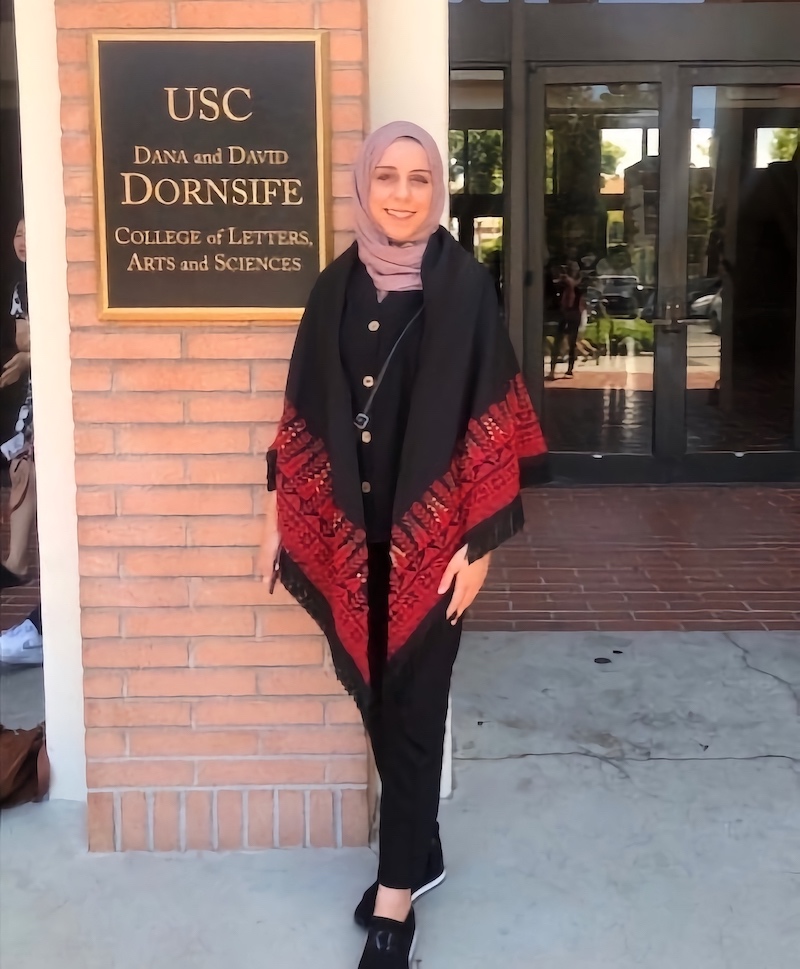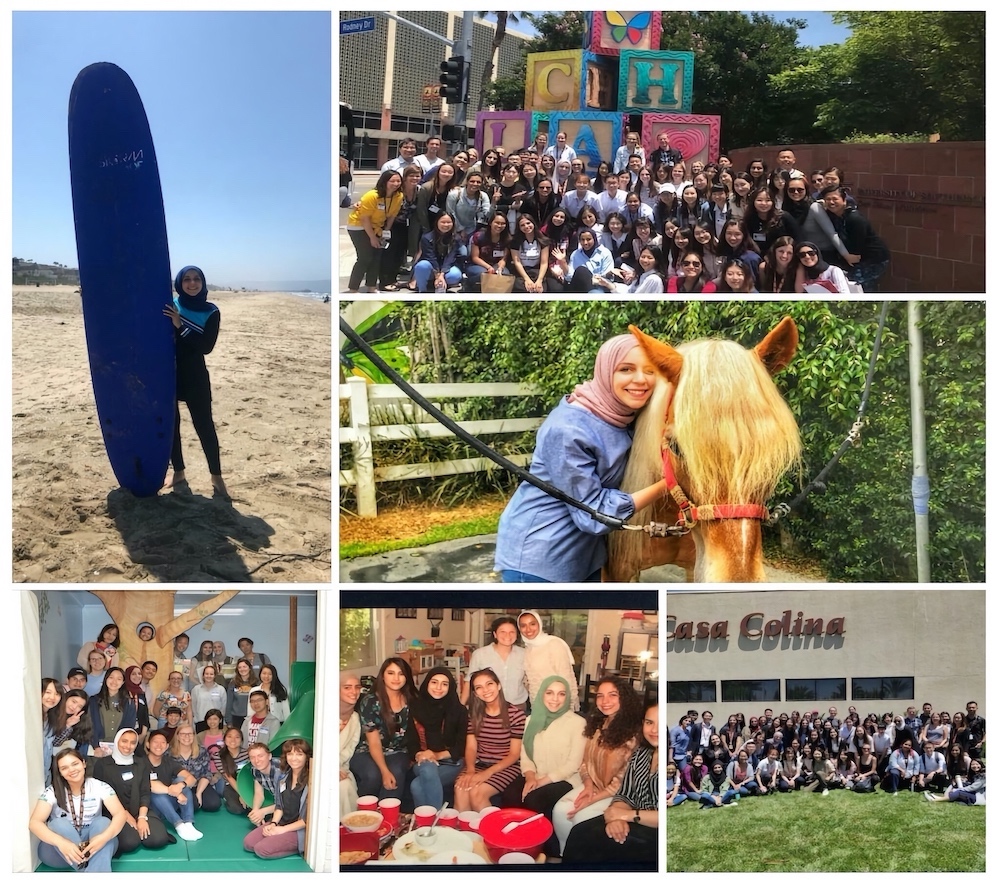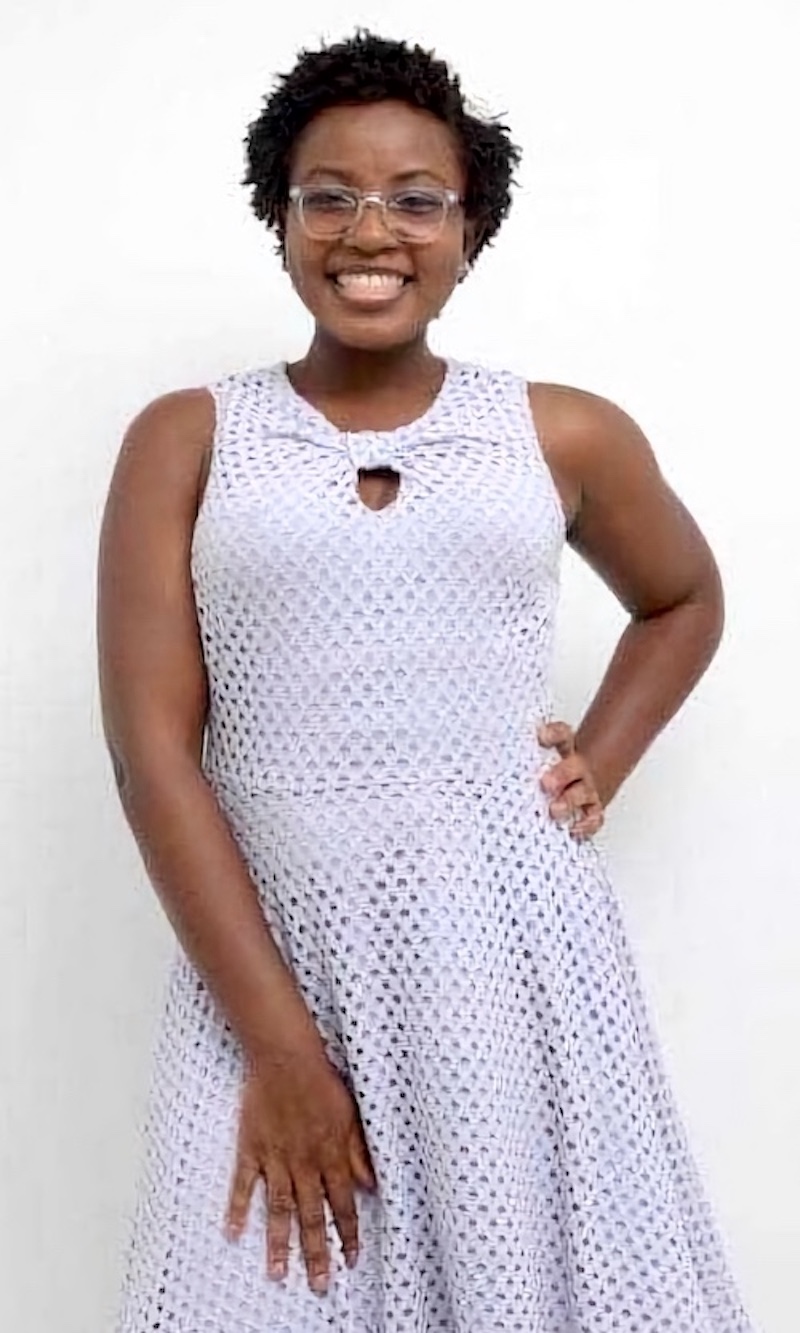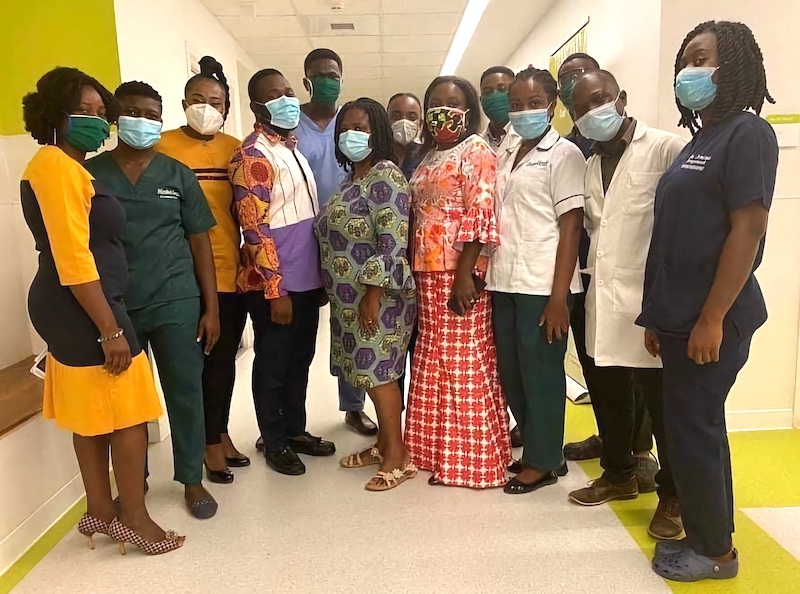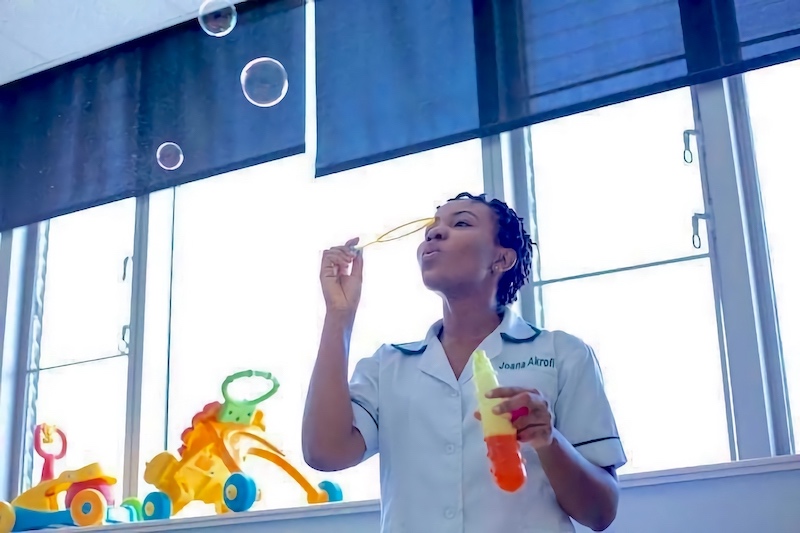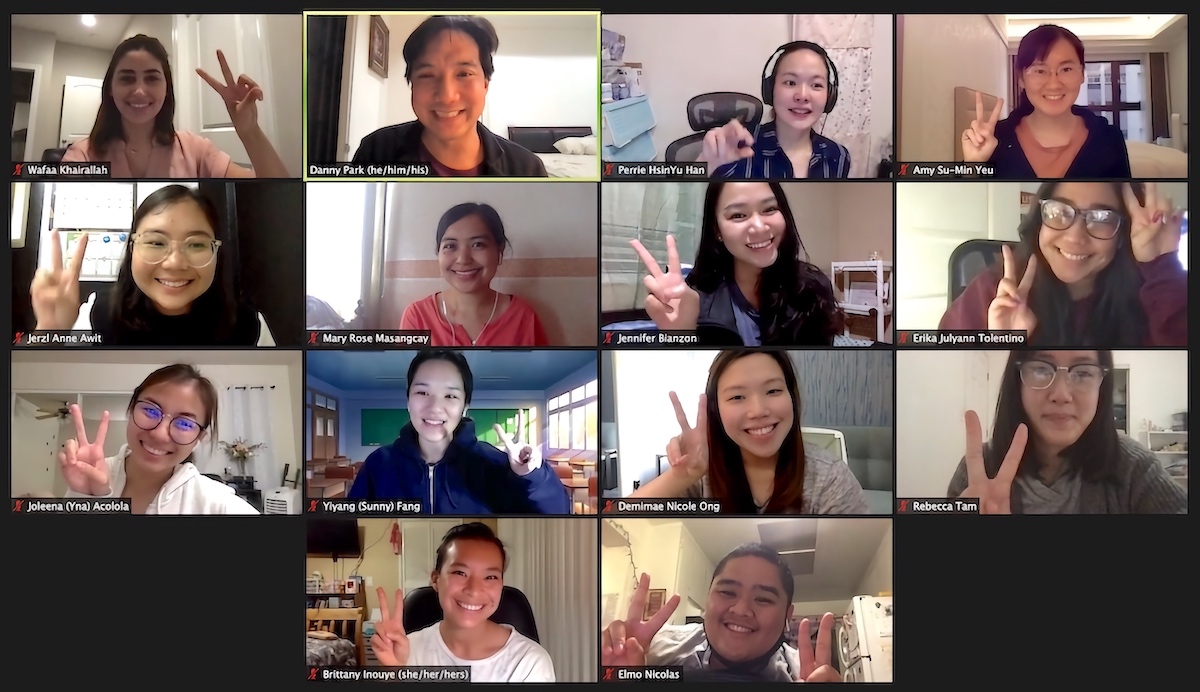Student Blog
Global Initiatives Team
Vivir Con Diabetes ⟩
May 25, 2021, by Global Initiatives Team
Diversity Fieldwork Getting Involved
By Stephanie Gomez-Rubalcava and Liz Rivera
Professional Master’s students
Vivir Con Diabetes (in English: “Living With Diabetes”) is a community service project that we have been hosting as a part of the Albert Schweitzer Fellowship. This fellowship requires students to collaborate with a community site and create a project that caters to the needs of an underserved population. Our project was tailored to service individuals in the local, Spanish-speaking community of Boyle Heights who have been diagnosed with prediabetes or Type II diabetes. We believe that there is an increased need for healthcare providers who can implement culturally-sensitive interventions.
This program was started in 2018 by an occupational therapy student in the Chan Division, David Saldana. It was then continued the following year by Daniel Padilla Vega and Cecilia Garcia. We began as volunteers for the program in 2019 and were awarded the Schweitzer Fellowship in 2020. With USC OT students receiving this fellowship for the third year, it provided us the opportunity to continue expanding this amazing work. Our sessions covered topics related to lifestyle modifications to improve diabetes management such as: stress management, mental health, sleep hygiene, and increasing understanding of what it means to be diagnosed with diabetes. We really wanted to focus on prevention for those diagnosed with prediabetes and on modifying the habits and routines of those diagnosed with diabetes. In previous years, these sessions were hosted in person at our project site, the LAC+USC Wellness Center, but due to the global pandemic, we had to host the sessions virtually.
Although over the last year we faced several challenges in delivering the diabetes management content via Zoom, there were some great benefits to conducting this program virtually. Some of the challenges included making the program accessible for our target population, participant difficulties navigating Zoom, and internet connectivity issues. The silver lining to all of these challenges was that over the weeks, we created a family-like, virtual community and provided participants with space to reflect on their health goals. Many of them mentioned that our Saturday sessions were the only time they dedicated to themselves, and so we decided to incorporate at least 10 minutes of mindfulness/yoga activities to each session. We also provided every participant with at least one free, at-home hemoglobin A1c test to screen for diabetes.
Although a couple of weeks ago we celebrated our final Vivir Con Diabetes session, we are truly grateful for the opportunity to learn with and from our participants. As soon-to-be Latina graduates of occupational therapy, we are excited to continue working with our Latinx community in our future careers and helping them bring about positive and meaningful change in their lives. Lastly, Stephanie Perez, a previous volunteer of Vivir Con Diabetes, has recently been awarded a 2021-2022 Albert Schweitzer Fellowship (see contact information below). We are excited for her to bring innovative ideas to the program, and we encourage current or incoming students to contact her for an opportunity to volunteer with her project during the Fall and Spring semesters. Thank you to our mentor Dr. Jesus Diaz, Daniel, Cecilia, and all of our 2020-2021 student volunteers for making this program possible. Fight on Trojans!
Stephanie Perez, OTS: .(JavaScript must be enabled to view this email address)
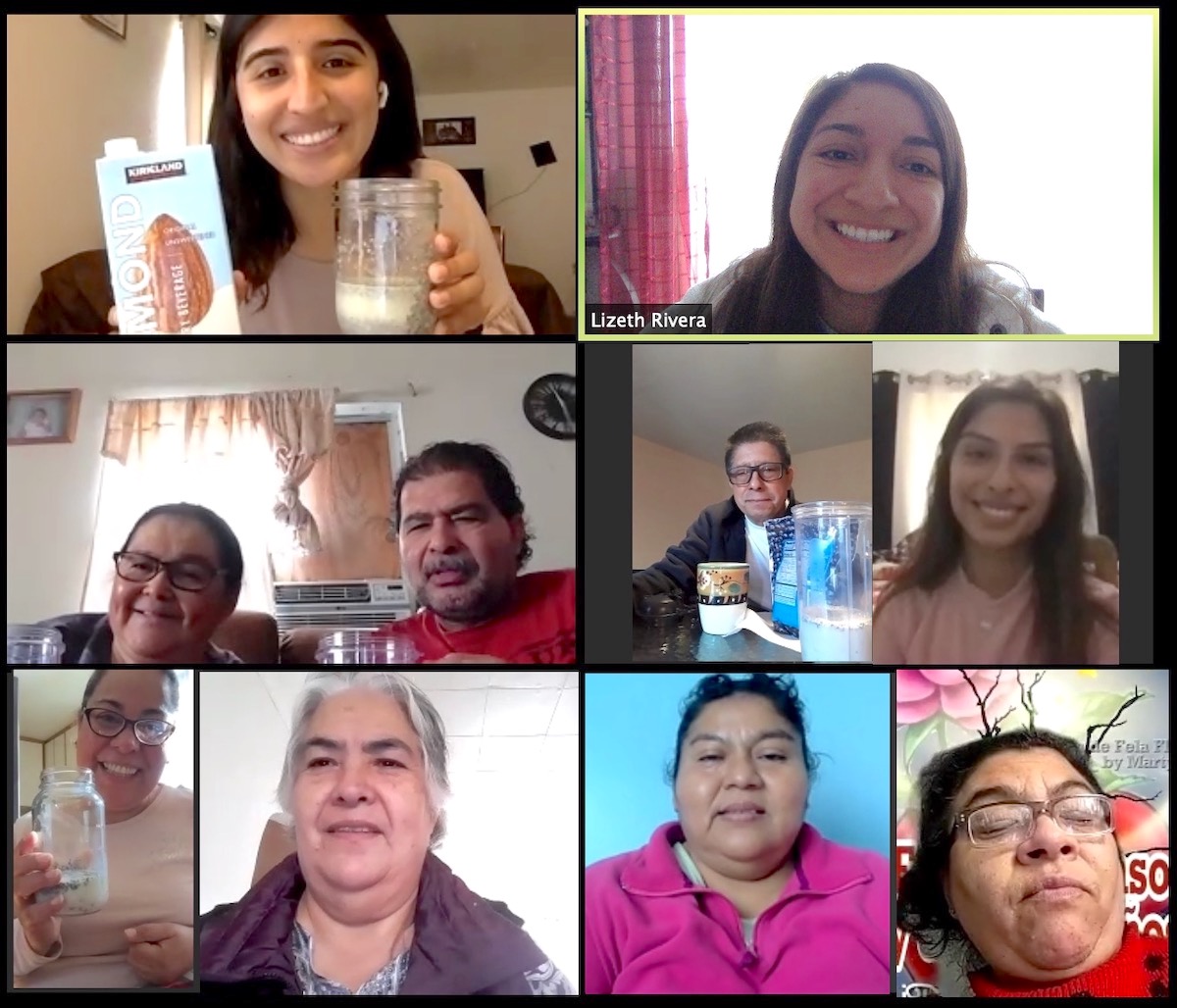
A photo from one of our nutrition/healthy eating sessions. We prepared overnight oats with some of the participants via Zoom.
⋯
Alumni Spotlight: Mineh Badmagharian ⟩
May 3, 2021, by Global Initiatives Team
Classes Externships International
Mineh Badmagharian, OTD, OTR/L
Alumni: Professional Master’s, OTD
By Brittany Inouye and Michelle Plevack
Entry-Level Professional Master’s students
In collaboration with James Lee
Alumni: Professional Master’s, OTD
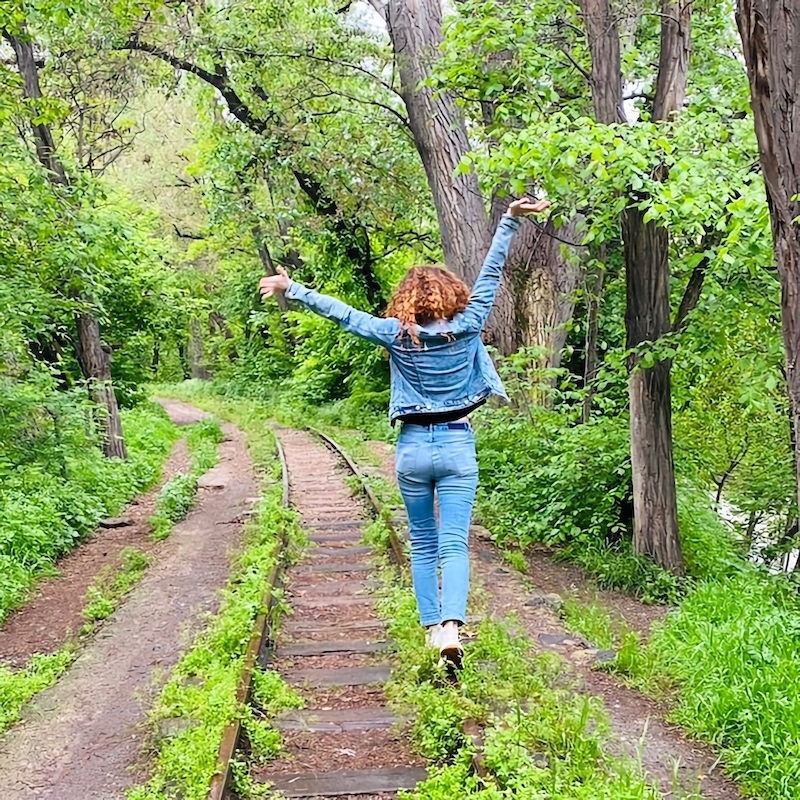
Mineh describes this photo taken of her at Yerevan Children Railway as, “one of the best moments I had while in Armenia”
Global Initiatives members Brittany Inouye, Michelle Plevack, and James Lee had the pleasure of interviewing Mineh Badmagharian, a double Trojan who graduated from USC Chan’s Professional Master’s and Post-Professional Doctorate (OTD) programs. We are excited to showcase Mineh’s remarkable journey of exploration, perseverance, and love for OT!
Mineh’s Armenian heritage and her experience leaving her birth country of Iran at the age of 12 led her to complete her OTD residency in a community-based mental health setting at Intra Mental Health Center, in Yerevan, Armenia. This move was a difficult transition where she found herself living in a new country, being on her own for the first time, and struggling with language barriers as Russian is the second language spoken in Armenia. Her motivation to address the stigma of mental health in Armenia, her passion for the arts, and her desire to help people led her to slowly settle into her OTD site where she “fell in love” with this setting.
Unfortunately, when the COVID-19 pandemic hit, Mineh’s OTD residency site closed down. In a country with limited internet connectivity, her residency work transitioned primarily to phone communication with clients every day. During her year in Armenia, Mineh realized she was learning in many ways she had not previously anticipated. She found herself constantly checking her assumptions, realizing that there is no single way of thinking or perceiving, and learning how OT interventions cannot be generalized to all backgrounds. She shares that for many people in Armenia, “work” is not as meaningful of an occupation as socializing in the community — a prevalent theme in interdependent cultures. She nurtured new opportunities to connect with her clients by taking Armenian dance classes, which equipped her to engage with her clients in the meaningful social occupations that they valued.
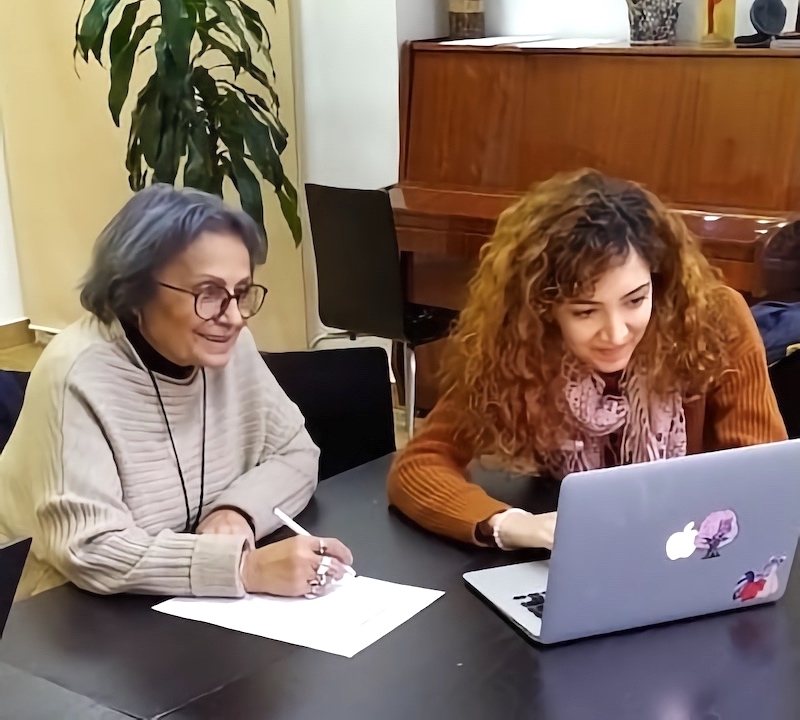
Mineh and her site supervisor Mrs. Anahid Iskandarova working on documentation at Intra Mental Health Center
Mineh describes a sense of community within the site’s office, and she shares that strategies from her Lifestyle Redesign class (OT 583) helped her cope with the pandemic, the trauma of the war in Armenia, and COVID-19 travel restrictions which prohibited her from leaving the country. After finishing her OTD in August 2020, she was hired as the Head of Research and Strategy at Expper Technologies. This robotics company is based in Armenia and Mineh completed her work online while residing in California. Mineh worked with a team to create Robin, an artificial intelligence-based robot companion to children undergoing medical treatments. She helped develop Robin’s personality, the way Robin interacts with kids, and game content that decreases anxiety and fear associated with medical visits. The team spent 1000+ hours acting as Robin, transcribing quotes, and gathering data for Robin’s algorithm.
Although her current job title does not specify her as an occupational therapist, Mineh believes she brings aspects of OT into her role and has future hopes to work in community mental health settings in Armenia. Mineh warmly encourages anyone interested in doing OT international work to “Go do it! Be open to learning!”
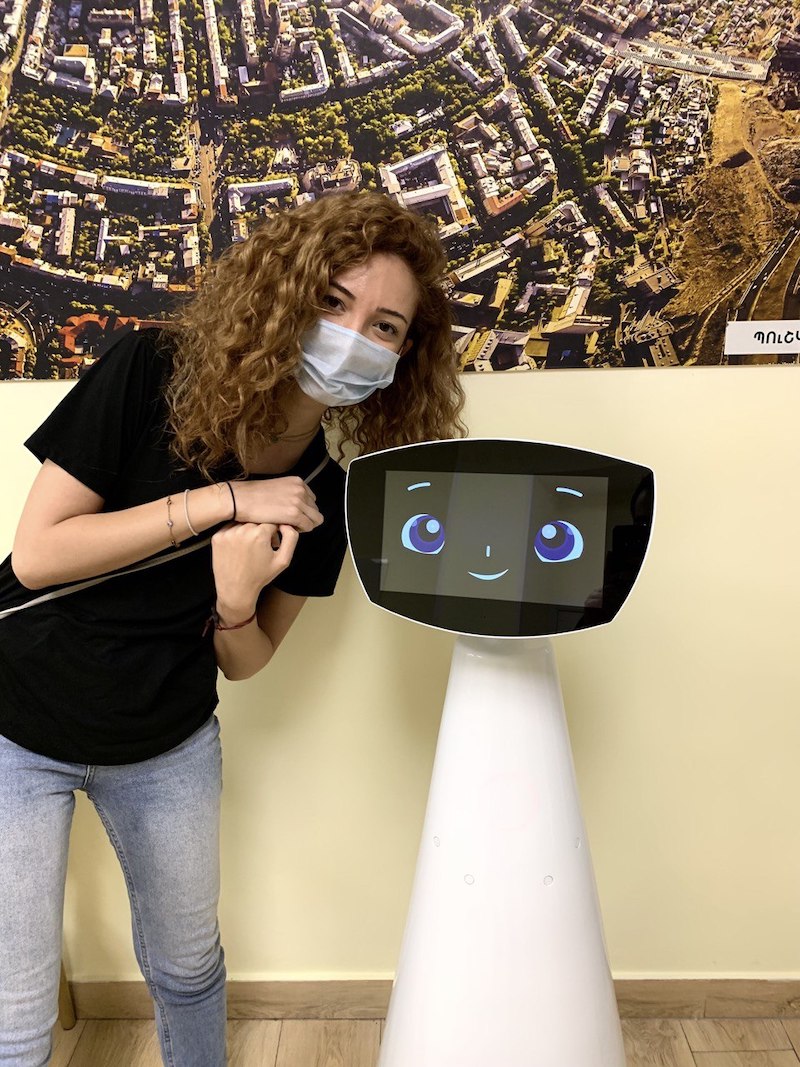
Mineh and Robin!
⋯
My Summer Occupational Therapy Immersion (SOTI) Program Experience ⟩
April 14, 2021, by Global Initiatives Team
By Samar Lahham, Occupational Therapist in Palestine
SOTI Alumni (2019)
My experience in USC’s Summer Occupational Therapy Immersion (SOTI) program for one month was indescribable and memorable, both personally and professionally. Participating in this program gave me the opportunity to learn from new experiences by attending lectures and site visits that are related to various areas of occupational therapy. In addition to the common occupational therapy intervention areas in Palestine, I have also experienced new interventions for wider population categories. For example, the role of occupational therapy working with people who have been through homelessness, human trafficking, and perinatal loss. These are new and important interventions I would take back to my country as a qualitative addition for the occupational therapy profession. For me, the most interesting experiences were learning about animal-assisted therapy through The Children’s Ranch Foundation, Ocean Therapy, and innovative practices that help children living with autism, cerebral palsy, visual impairments, and adults living with mental health conditions. This experience opened my eyes to new and interesting aspects within the field which I would complete my Master’s in.
The SOTI program also created opportunities for effective interactions between participants from all over the world, which enhanced sharing knowledge about occupational therapy theoretically and practically in other cultures.
Personally, the SOTI program provided me the chance to face new challenges and experiences for the first time in my life that made me more confident and stronger. It’s the first time I’ve traveled alone for 22 hours, my first experience in surfing and closely interacting with animals as I hugged a horse and carried a chicken or rabbit, and it was also interesting to try new foods from different cultures and visit amazing places in LA. This experience made me more responsible and independent in managing my daily affairs and needs, taking care of myself, enhancing my financial and time management skills, and also improving my leadership and communication skills by being a group facilitator for many presentations. Moreover, my English skills have improved significantly through the program, making new friends and interacting effectively with the American society.
I really would like to recommend SOTI to other occupational therapy students as it is a great chance to improve their skills professionally and personally.
Samar at SOTI. [top left: Ocean Therapy (Redondo Beach), top right: Children’s Hospital Los Angeles, Center right: The Children’s Ranch Foundation, bottom left: Pediatric Therapy Network, bottom center: Visiting with Dr. Samia Rafeedie, bottom right: Casa Colina Centers Hospital and Centers for Healthcare]
⋯
Transforming Western Perspectives — Continued ⟩
April 2, 2021, by Global Initiatives Team
Joana Nana Serwaa Akrofi, OT
Post-Professional Master’s student, University of Ghana Graduate, Newsletter Editor for the Occupational Therapy Africa Regional Group
By Michelle Plevack
Entry-Level Professional Master’s student
In collaboration with Brittany Inouye
Entry-Level Professional Master’s student, Global Initiatives Student Worker
In February 2021, Global Initiatives had the pleasure of hosting a Global Brown Bag Seminar featuring a variety of international occupational therapy perspectives (Transforming Western Perspectives: Lessons Learned from International OT). We are excited to highlight one of the panelists, our very own Joana Nana Serwaa Akrofi, OT, and her work as an occupational therapist in Ghana.
While Joana is currently residing in Los Angeles for the Chan Division’s Post-Professional Master’s (MA-1) program, she was born in Ghana and has worked there as an OT across a variety of settings. Before becoming an OT, Joana was an advocate for feminism and spirituality, and expresses that she has always felt she was “born to be an activist.” This mindset has translated into a sense of advocacy for occupational therapy in Ghana, where individuals with disabilities are frequently stigmatized. Following schooling, Ghanaians who complete a higher education are required to work in their field for one year in an unpaid government position. With a strong interest in pediatrics and in particular, children with autism, she spent this unpaid year working at a community-based institution where she educated teachers and students about the developmental needs of students with disabilities. This kickstarted her interest in Sensory Integration strategies for this population. While there is presently no Sensory Integration certification in Ghana, Joana hopes to pioneer SI practice using the available resources in her home country.
Although Joana’s academic journey with USC has taken place amidst a global pandemic, her positive outlook highlights the collaborative, inclusive, and diverse nature of the Chan community. She describes how communities such as Global Initiatives “helped us celebrate our roots and makes me proud to be Ghanaian.” She has felt enlightened by her experience at USC in that she had previously believed Westerners to have a negative, single narrative about the people of Ghana. Having now interacted and worked with not only Americans, but a wealth of diverse individuals in the MA-I cohort, Joana has become reassured by the solidarity within her classrooms and the Division as a whole. She described feeling inspired by both her professors and classmates’ experiences, which I in turn relate to, feeling inspired by Joana’s confidence and resolve.
Joana’s voice holds great fortitude and passion while envisioning her hopes for occupational therapy in Africa. She describes the profession as going through a phase, and dreams of establishing occupational therapy in Ghana in a way that is relevant to Ghanaians. In contrast to the United States, in Ghana, interdependence within the local community is valued and ‘needing help’ is less taboo. It is not strange for extended families and friends to want to help nurture each other during times of need. She hopes to integrate these values into her practice as an OT. While Western viewpoints focus on independence in activities of daily living (ADLs), decolonizing that perspective would mean realizing that group facilitation of these same ADLs can actually bring community members together in a healing way.
If she could give one word of advice for anyone interested in working in Africa or abroad in general, it is to “go in trying to learn rather than trying to teach,” which is ironic in that while Joana is here at USC to learn, she has subsequently taught us so much.
Bubble activity used to engage children with Autism Spectrum Disorder (ASD) before beginning sessions
⋯
How USC helped me get through this pandemic, virtually ⟩
March 14, 2021, by Global Initiatives Team
By Wafaa Khairallah
Post-Professional Master’s student
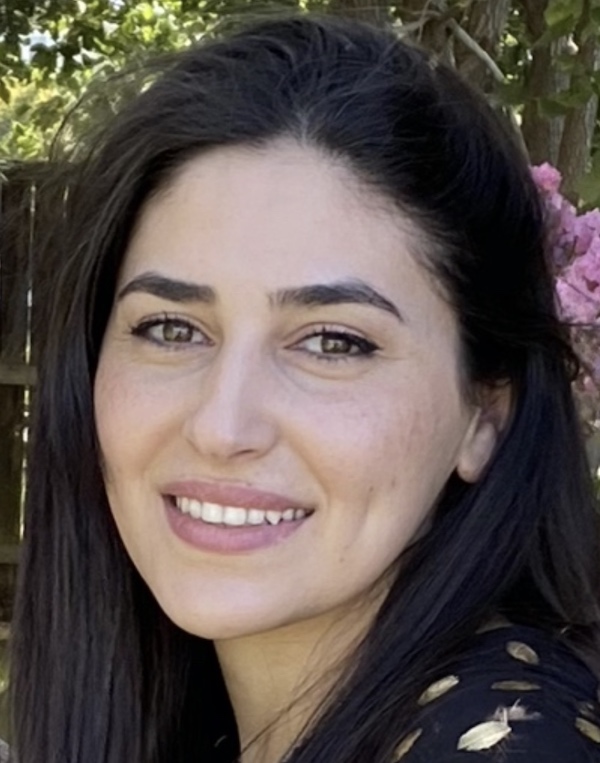
Wafaa Khairallah
Thinking back to 2020 and how it started, I never thought my educational and professional goals would work out the way I wanted, but after all it happily did!! I gladly think that being enrolled at USC as a Post-Professional Master’s (MA1) student has helped me get through those difficult times — not only by keeping me busy, but rather by socially connecting me on a high intellectual level with people with shared interests and ambitions. From a very personal experience, these are some aspects of how I felt USC has helped me to get through the pandemic.
Feeling of inclusion
I imagined that I wouldn’t be able to attend any school in the U.S. as an immigrant who wants to study here while my Green Card application was still pending. Certain universities were even unable to proceed with my admission process because of their policies and limited understanding of how to proceed with my circumstance. It was a little hard for me to navigate this, but fortunately USC was able to go through this process in a much clearer way. This definitely proves USC’s compliance in embracing inclusion for all and with little time to wait, greatly impacted my pursuit through my professional journey.
Networking
As an MA-1 student at USC and a part of the USC Chan Global Initiatives team, I have been impressed by the amount of effort the Division puts into developing collaborative, international partnerships. Specifically, I was very pleased to know that USC has partnered with my home school, Bethlehem University (Palestine), through the Summer Occupational Therapy Immersion program. Being able to connect with global occupational therapists has not only improved my knowledge in many areas related to OT, but has pushed me to also reflect more on how such connections will foster multiple opportunities for many novice, passionate occupational therapists around the globe.
Making new friends
Frankly and as expected, it was not easy for me to move from one country to establish my life in another. I still need to develop new relationships and friendships. As we know, COVID did not make it any easier with all the lockdowns and safety regulations. However, this opportunity was definitely delivered by USC. Now, I am able to say that I have new colleagues and future friends in the program. Although our communication is virtual, we are still able to connect on a personal level; hoping to meet in person in the near future!
⋯






